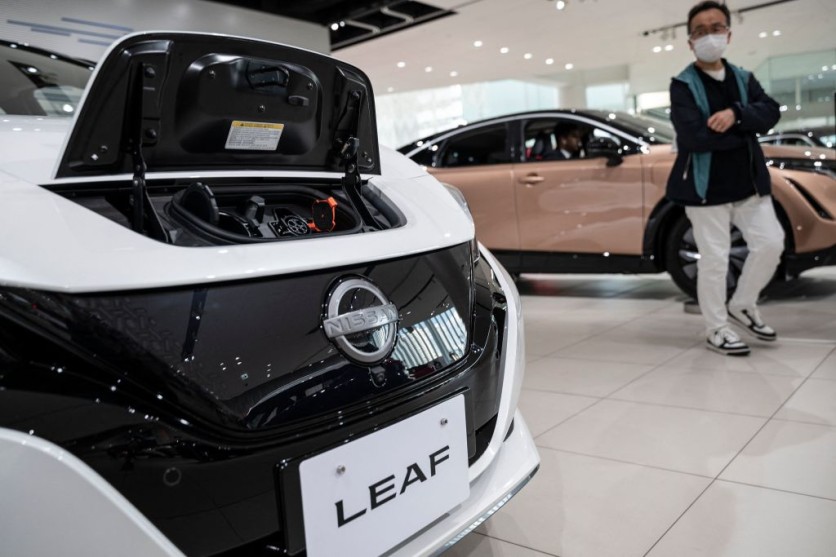In a bid to reduce waste and maximize the utility of electric vehicle (EV) batteries, Nissan, the renowned Japanese automaker, is embarking on a sustainable endeavor.
According to the Associated Press, the company has begun upcycling batteries from older Nissan Leaf electric vehicles (EVs), giving these batteries a second life as portable power sources capable of running various gadgets on the go or providing crucial emergency power during disasters.

Nissan Is Upcycling EV Batteries
Nissan, a company that has sold over 650,000 Leaf EVs, recognized that the batteries in these vehicles often maintain a significant charging capacity even after the end of the car's lifespan.
Seeking to harness this untapped potential, Nissan has teamed up with electronics manufacturer JVCKenwood Corp. and 4R Energy Corp., a company co-owned by Nissan and Sumitomo Corp., specializing in ecological vehicles and power storage systems.
The outcome of this collaboration is a portable power source weighing 14.4 kilograms (approximately 32 pounds), which is being offered for 170,500 yen (about $1,170) in Japan. Plans for overseas sales have not yet been finalized, according to AP.
Each Nissan Leaf is equipped with 48 battery modules, and these portable power stations incorporate two of these modules. The key to this innovation lies in testing the batteries of retired Leafs to determine which ones can still effectively hold a charge, providing a sustainable solution for batteries that would otherwise go to waste.
It is worth noting that EV batteries are comprised of expensive rare metals and other raw materials, and the manufacturing process generates carbon emissions. Nissan aims to contribute to environmental sustainability by repurposing these batteries for alternate uses.
Read Also : E-Buses May Lead to Significant Reduction of Emissions, Hitting Urban Net-Zero Targets - Study Reveals
EV Batteries' Potential in Energy Storage
Balakumar Balasingam, an associate professor of electrical and computer engineering at the University of Windsor, who is not directly involved in Nissan's project, attests to the potential of retired EV batteries in energy storage applications, AP reported.
He explains that while these batteries may no longer have the capacity to power electric vehicles when their charge declines to around 80%, they remain well-suited for other purposes.
Balasingam emphasizes the importance of finding such solutions, as billions of EV battery packs may be manufactured and prematurely recycled in the next decade, posing significant sustainability challenges.
This initiative by Nissan underscores the automaker's commitment to environmental responsibility and resource optimization. By repurposing these batteries, they are not only extending the useful life of valuable components but also aiming for a more sustainable future for electric vehicles.
Nissan's endeavor to transform old EV batteries into portable power sources aligns with broader industry efforts to find innovative solutions for battery recycling and repurposing.
As the EV market continues to expand, addressing the lifecycle of EV batteries becomes increasingly crucial to reduce waste, minimize environmental impact, and ensure a sustainable energy future.
Related Article : NIO Suggests Unique Approach to Replace EV Batteries, Swapping Depleted Batteries for New Ones

ⓒ 2026 TECHTIMES.com All rights reserved. Do not reproduce without permission.




